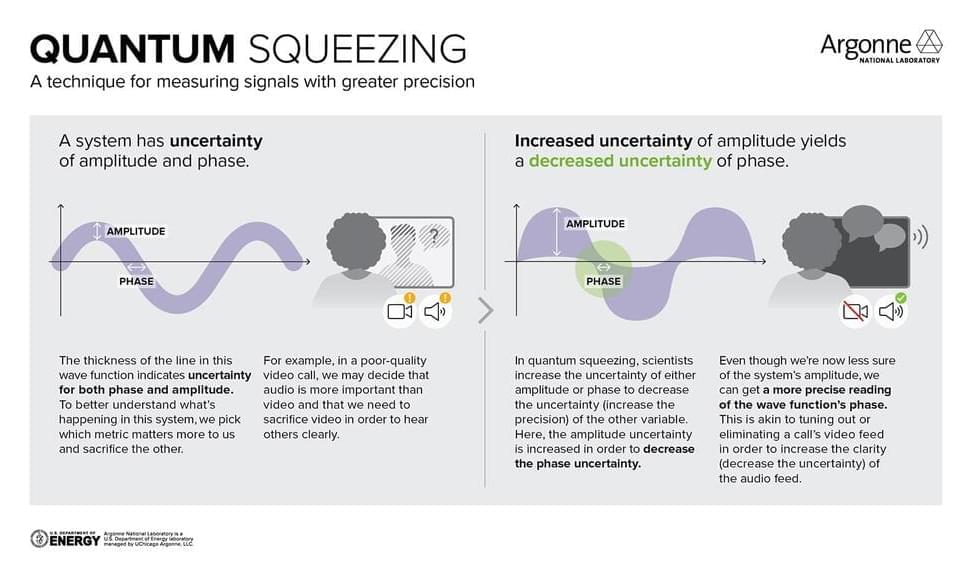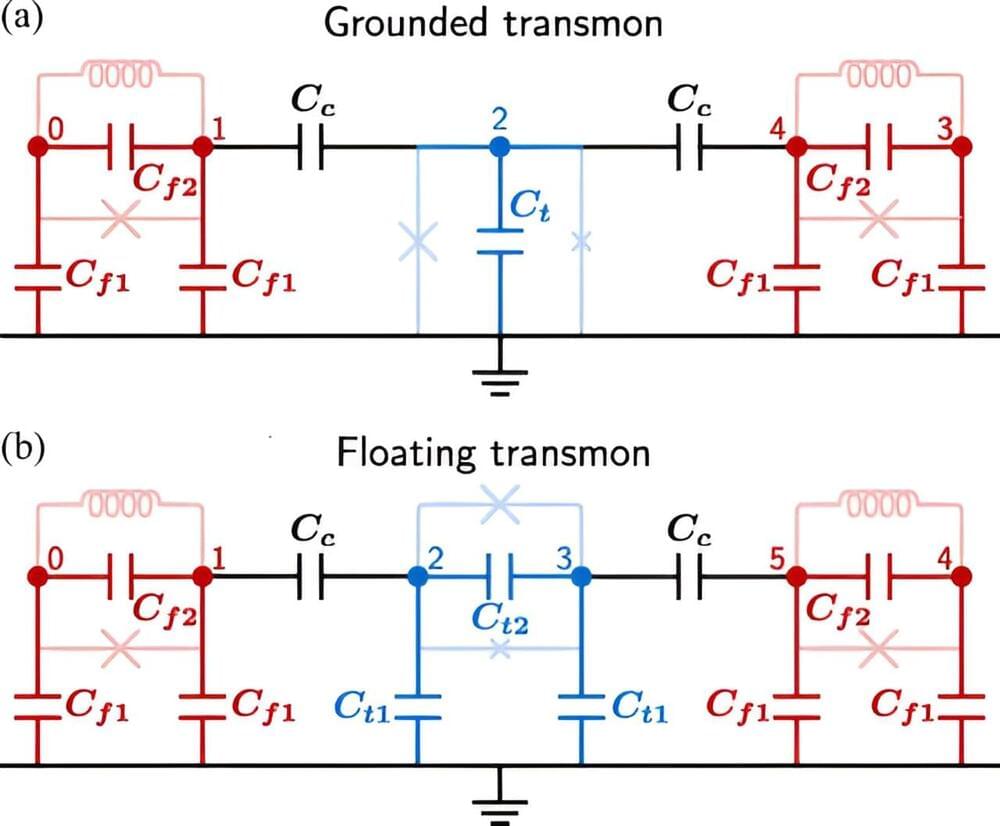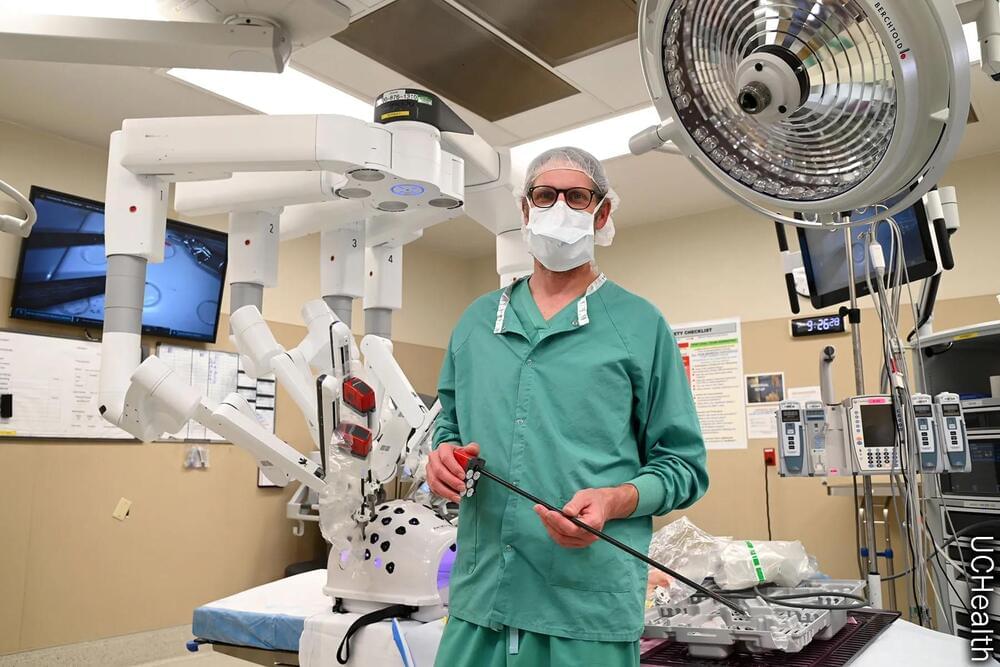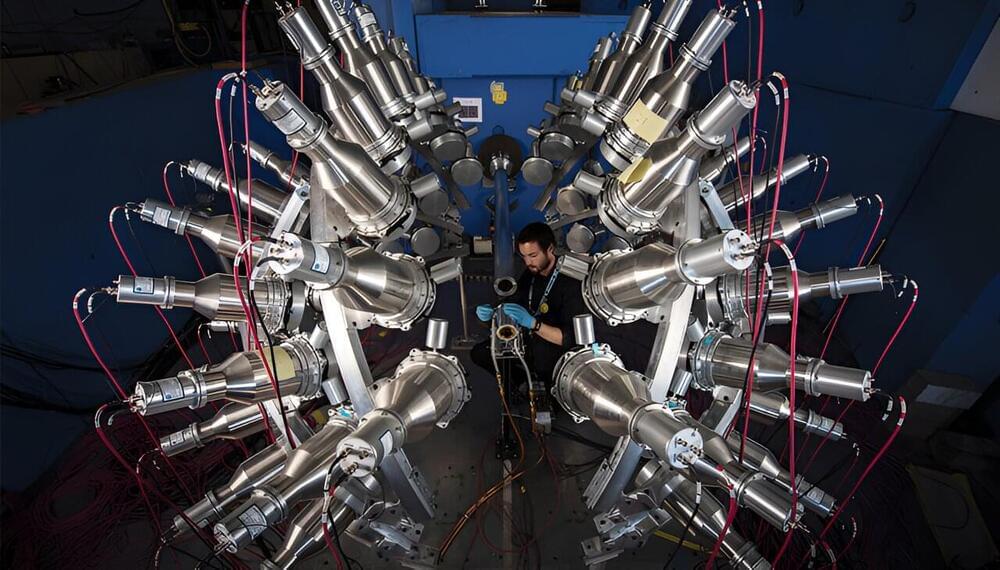How many times have you shown up to a video meeting with people at work only to find you have terrible internet that day? Maybe the others on the call are cutting in and out, or maybe your own signal is being corrupted on their screen. Regardless, many remote workers have found a simple solution—turn down the video quality and focus on audio.
In a very general sense, this is the same technique that researchers leverage when using quantum squeezing to improve the performance of their sensors. Mark Kasevich, a professor of physics and applied physics at Stanford University and a member of Q-NEXT, uses quantum squeezing in his work developing quantum sensors.
Q-NEXT is a U.S. Department of Energy (DOE) National Quantum Information Science Research Center led by DOE’s Argonne National Laboratory. Center researchers use quantum squeezing to make better measurements of quantum systems.









